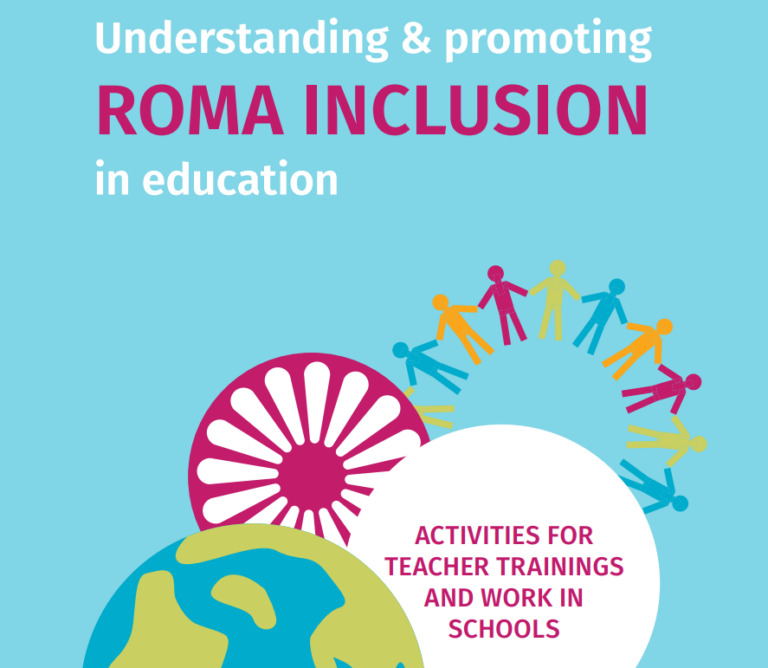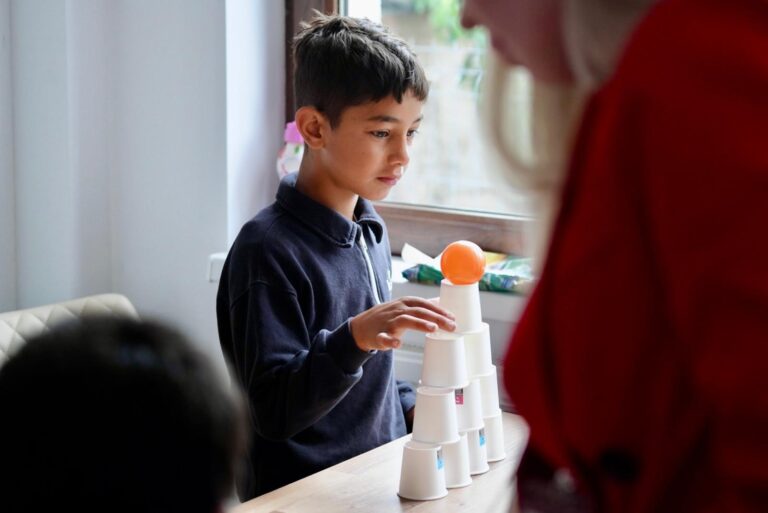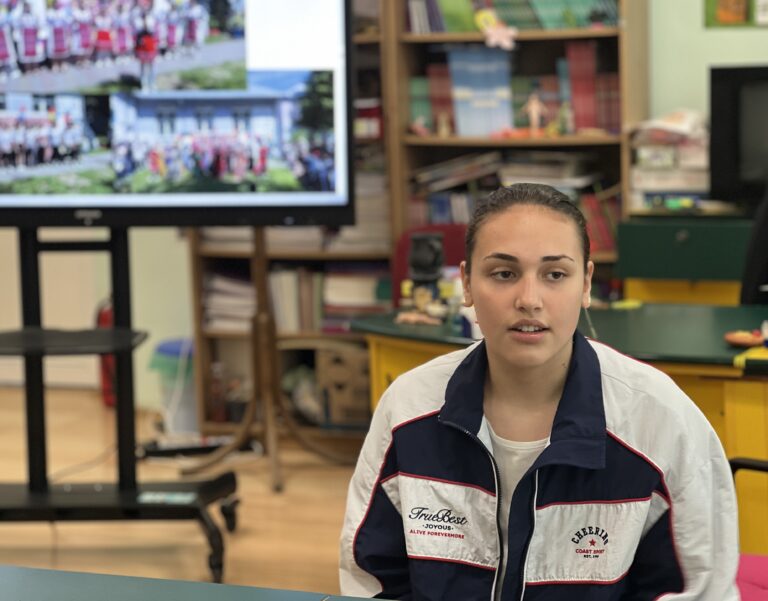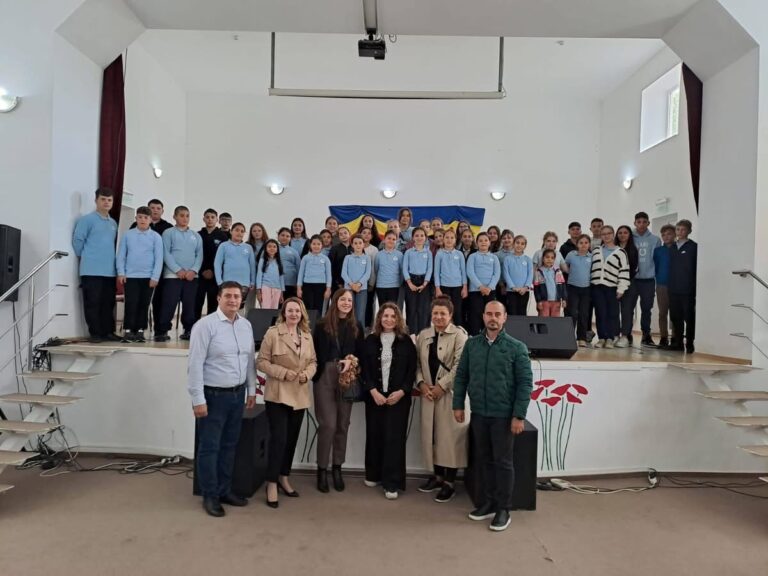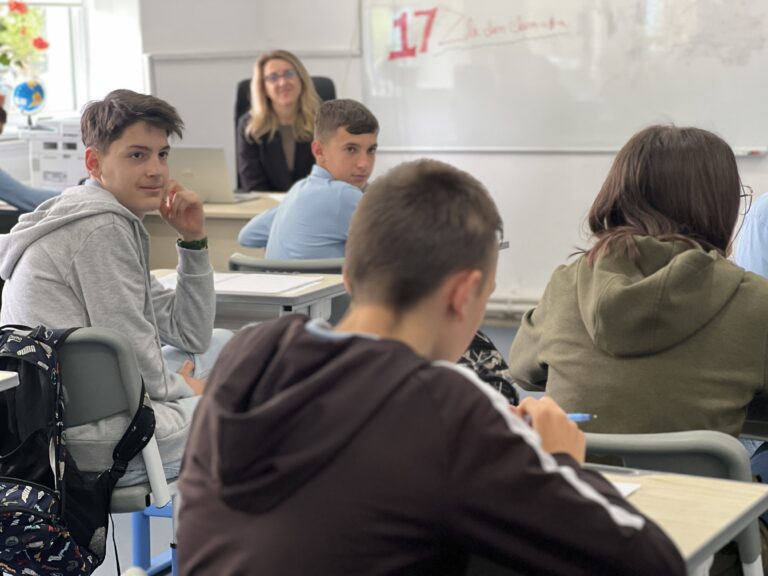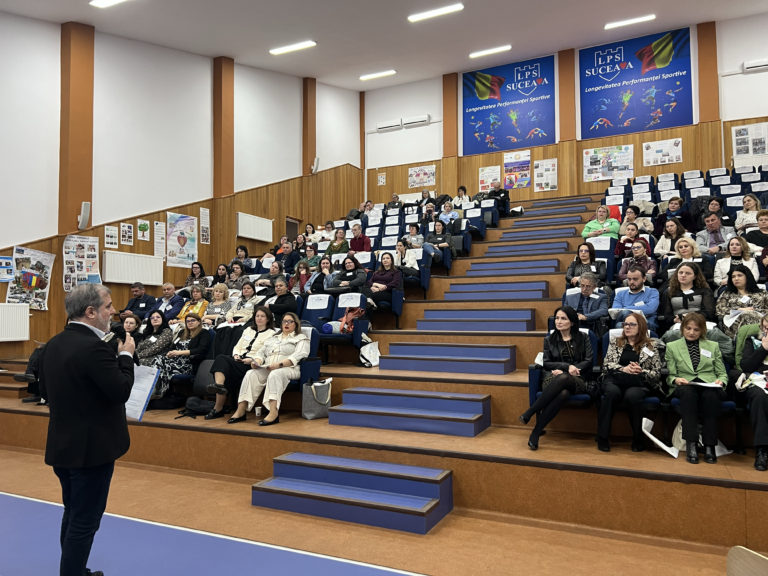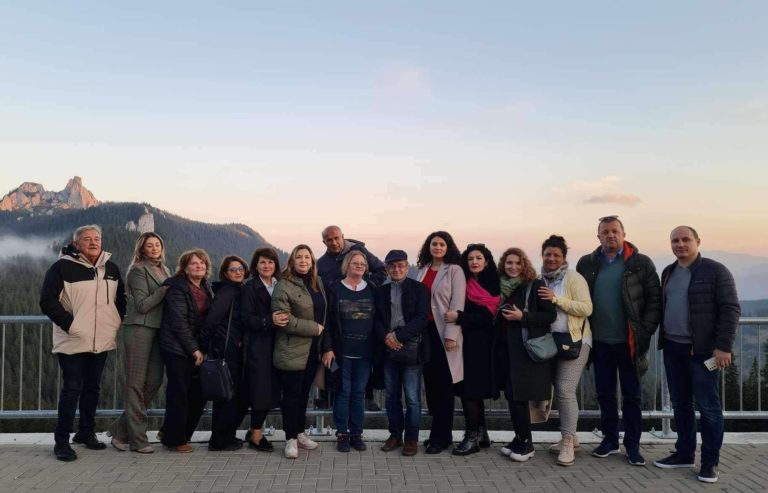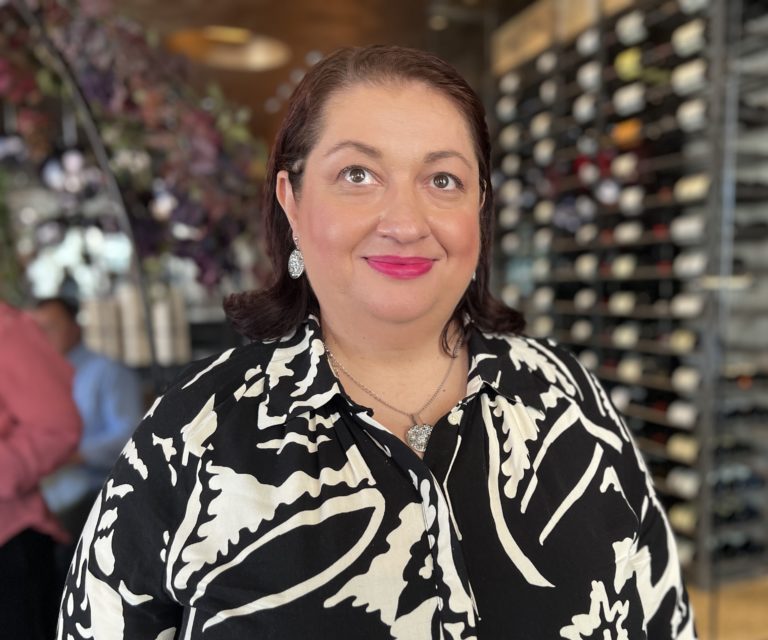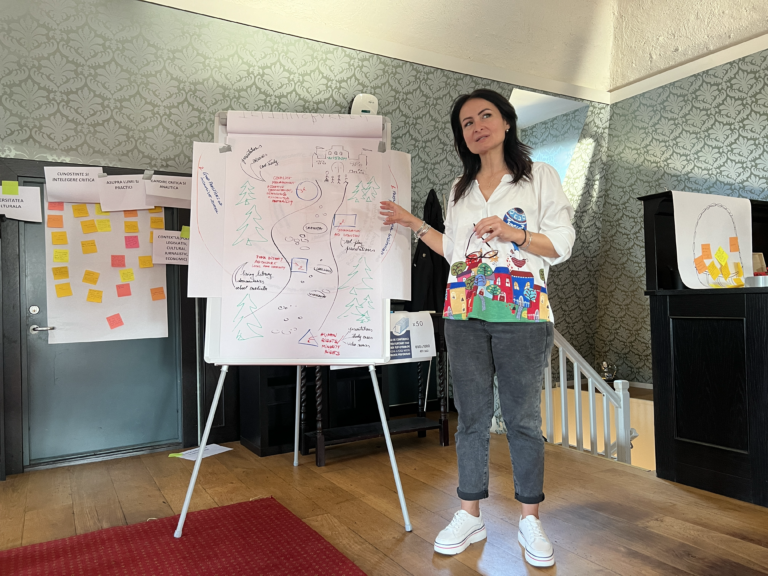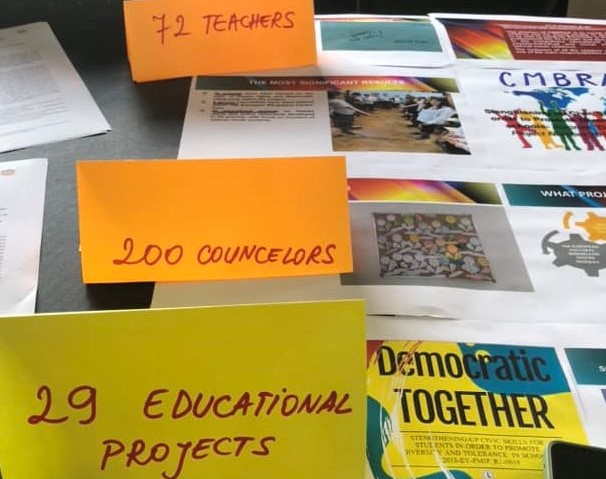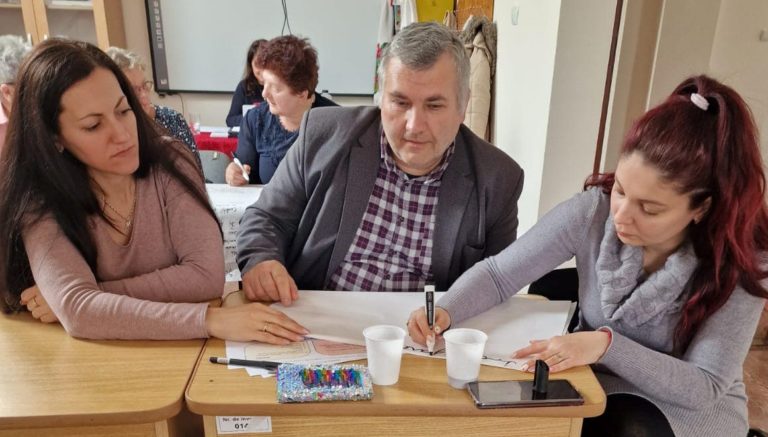At the European Wergeland Centre, we believe that democracy begins in the classroom.
To safeguard our democracies, we must strengthen democratic governance in kindergartens, schools, and local communities. When children grow up in a democratic culture – guided by teachers who have the skills and confidence to empower them – they learn not only the foundations of democracy and human rights, but also the responsibility to uphold and defend them.
No one has a longer and more difficult road to reach the classroom than Europe’s Roma minority. Discrimination, poverty, segregation, and mistrust between communities continue to deny many Roma children their fundamental right to education.
Norway, Iceland, and Liechtenstein support initiatives to improve the situation of Roma communities through the EEA and Norway Grants. For the European Wergeland Centre, Roma inclusion and empowerment is among our strategic priorities. Thanks to the continued support from the EEA and Norway Grants we are able to consistently pursue this goal.
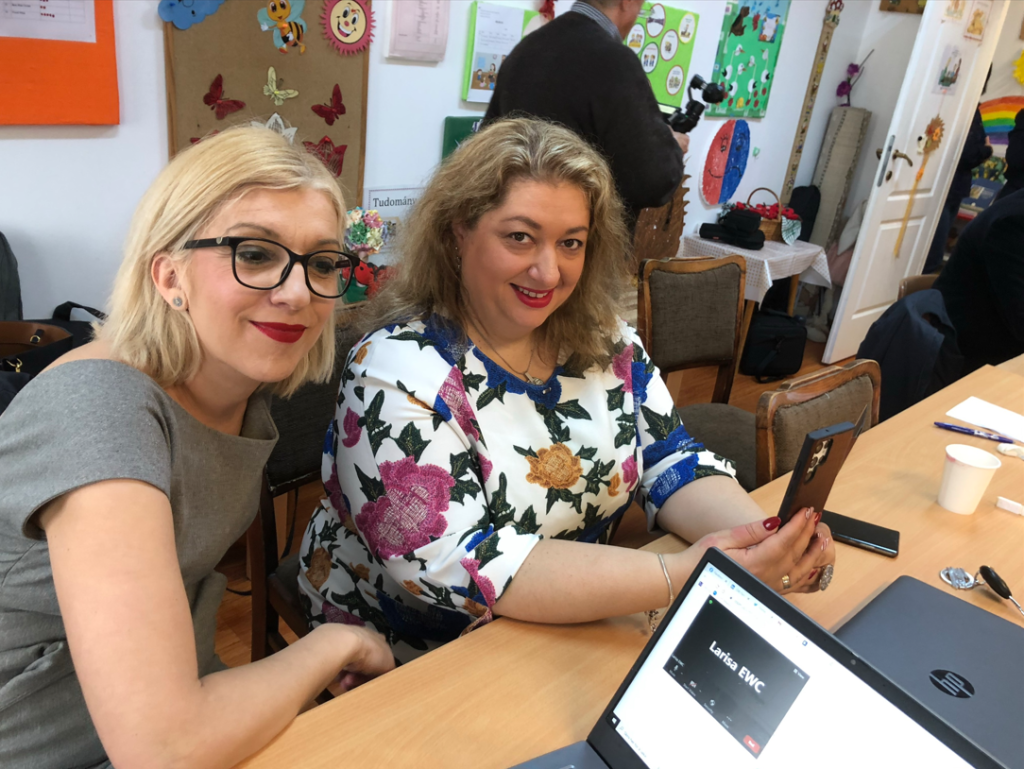
Strategic investment in education has the power to transform lives, strengthen communities, and foster long-term social cohesion. To achieve lasting changes requires systematic, long-term engagement.
The return on investment in inclusive education extends far beyond the classroom. By fostering education based on the principals of human rights, inclusion and democratic values, we empower future citizens to actively participate in and contribute to society.
In parnership with the Romanian Social Development Fund, this project proposed a two-fold intervention aiming to:
- fill in the existing gap, by putting in practice immediate measures for current pre-university educational specialists – piloting cascade training for teachers in one/ two counties and increasing cooperation between different local actors with attributions in educational sector
- setting the basis for a more coherent structural change by initiating curricula’s modifications/ improvements at the university level, that would enable the future teachers with a set of skills/ knowledge on inclusive education/ CDC before graduation.
Key Activities:
Pre-University educational system:
Building on the success of previous trainings, the Wergeland Centre piloted a set of comprehensive measures to address existing gaps in Romania’s pre-university education system. This includes cascade training programs for teachers in select counties, focusing on creating safe, inclusive, and democratic learning environments. Additionally, the Centre fostered stronger cooperation between schools and local authorities to ensure that inclusive policies are effectively implemented at the local level.
The piloting activities were implemented in two Romanian counties – Calarasi and Suceava.
Training of Trainers:
In September 2024, the Wergeland Centre hosted a residential training in Oslo for 12 education specialists from the field of teachers’ professional development in Suceava and Calarasi (School Inspectorate, CJRAE and CCD). After the completion of the training course, the trainers formed a core group of local experts who provided ongoing support and guidance to schools across rural and small urban areas, multiplying the impact through further training sessions.
Collaboration Between Schools and Local Authorities:
In October 2024, the Wergeland Centre held two residential trainings (40 participants) in Oslo for joint groups of school heads and representatives of local authorities. The aim was to involve school heads from schools with a high percentage of Roma students as well as a significant drop-out rate.
By organising a joint training for the representatives of local authorities and school management, the project was able to foster collaboration and shared responsibility to implement inclusive education practices and promote community engagement and long-term sustainability.
A series of six school-based trainings in rural areas in Suceava and Calarasi were held for teaching staff from 30 schools. The activity aimed to enhance their capacity to create schools that would safeguard the wellbeing of all children and provide quality education.
By bringing together multiple schools, the educators and administrators were able to exchange existing practices and learn from one another. Schools face similar challenges, and collaboration provides a platform for joint problem-solving. Training together laid the foundation for a sustainable network of schools committed to ongoing collaboration.
Strategic Initiatives:
University-Level Reforms: As part of its long-term strategy, the European Wergeland Centre initiated dialogue with several Romanian universities to integrate CDC and inclusive education principles into teacher training curricula. A key component of this strategy was a round table event in Strasbourg organised in tight cooperation with the Council of Europe, as well as a study visit to Norway, where Romanian university representatives exchanged experiences and best practices with their counterparts from donor states. The goal was to discuss reforms needed in the Romanian Higher teacher education, ensuring that future teachers are equipped with the necessary skills to create inclusive and safe learning environment and competences to engage with diversity.
Knowledge Exchange and Networking:
The Wergeland Centre is committed to fostering a network of knowledge-exchange among education stakeholders in Romania. By organising forums and collaborative events, the Centre aimed to create a synergistic approach that encourages continuous professional development and the adoption of best practices across the education sector.
These initiatives were designed not only to improve current educational practices but also to establish a foundation for long-term, sustainable changes in Romania’s education system.
The project was implemented under the Local Development, Poverty Reduction, and Enhanced Roma Inclusion programme and funded by the EEA Norway Financial Mechanism 2014-2021.
